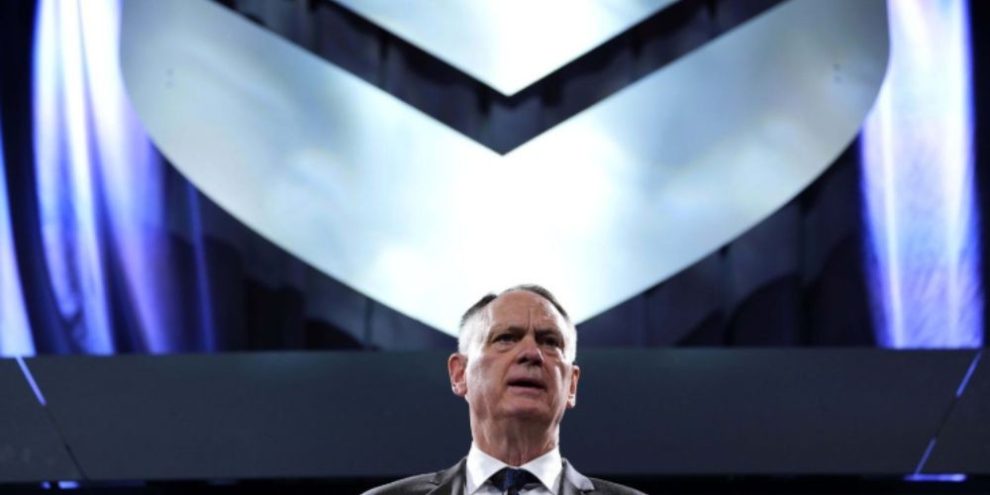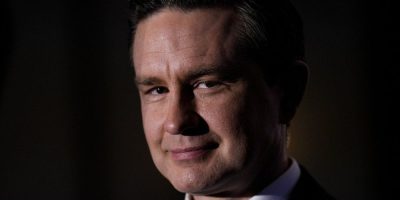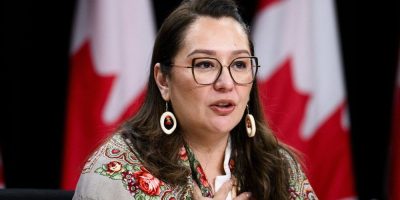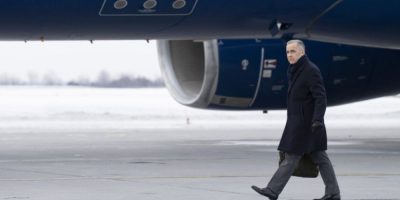
The federal government will take "immediate and decisive action" to rebuild Canada's military, Defence Minister David McGuinty told an audience of military contractors at a trade show in Ottawa Wednesday morning.
He stressed the government's sense of urgency by citing the speed at which Canada built up its navy at the start of the Second World War. McGuinty also warned that countries around the world are adjusting quickly to a changing global threat environment.
"I read yesterday that the Netherlands let 22 per cent of their public servants go — except for the defence department — to meet their obligations," he said in a state-of-the-union style speech at the CANSEC trade show in Ottawa.
"Other countries are doing away with national holidays. Others are increasing corporate taxes or running larger deficits in anticipation of the troubles that might be forthcoming."
Barrie's News Delivered To Your Inbox
By submitting this form, you are consenting to receive marketing emails from: Central Ontario Broadcasting, 431 Huronia Rd, Barrie, Ontario, CA, https://www.cobroadcasting.com. You can revoke your consent to receive emails at any time by using the SafeUnsubscribe® link, found at the bottom of every email. Emails are serviced by Constant Contact
That comment references Denmark recently abolishing a long weekend holiday called "Great Prayer Day" to bring in more tax revenue in an attempt to meet its NATO defence spending target.
The Liberal party's election platform states that the single largest sum in Prime Minister Mark Carney's spending plan — more than $30.9 billion — is earmarked for defence over the next four years.
McGuinty's remarks come just a day after the Liberal government signalled in its throne speech, read by King Charles, that Canada plans to join ReArm Europe, a major European defence procurement pact.
McGuinty said joining the plan will diversify Canada's defence partnerships and give it access to new opportunities in Europe's $1.25 trillion defence marketplace.
But McGuinty refused to answer questions from reporters at the event after his speech and ducked out through a back door by the stage.
In an interview with CBC News Tuesday evening, Carney said his government wants to join ReArm Europe by Canada Day.
ReArm Europe is a plan to leverage loans and redraw fiscal rules to pump funds into rearming European nations and building up domestic defence industries.
The initiative was launched after U.S. President Donald Trump suspended U.S. military aid supporting Ukraine's defence in its ongoing war with Russia, which has recently intensified.
Trump's former secretary of state Mike Pompeo is also set to speak at the CANSEC trade show.
Carney spoke about the ReArm plan with EU Commission President Ursula von der Leyen in March, not long after he first took office. He also quickly arranged a trip to the U.K. and France to bolster relationships with those major arms-producing nations.
Speaking with reporters at the CANSEC trade show, Royal Canadian Airforce Commander Lt.-Gen. Eric Kenny said it’s important to have a strong supply chain in place for times of crisis.
“The lessons that we're seeing that through the brutal war in Ukraine and the loss of countless of lives unnecessarily by the illegal invasion of Russia … show us that we need to be prepared for potential future threats,” he said.
“ReArm Europe is one of those ways of diversifying portfolios, and I think it’ll probably be good for Canadian business.”
Canada's commitment to ReArm comes at a time of profound trade tensions with the U.S., which has long been its most important trading and security partner and remains a key part of its military supply chains.
It also comes as Trump continues to pressure Canada and other NATO allies to ramp up defence spending.
NATO Secretary General Mark Rutte said Monday that he expects NATO allies to commit to spending five per cent of their GDP on defence at the NATO meeting in The Hague next month.
That would amount to a massive hike in Canada's defence budget requiring tens of billions of dollars in new spending.
Roughly 1.5 per cent of that five per cent commitment may end up being accounted for through broader investments in things like defence infrastructure and cyber security.
Some experts warn Canada's persistent low level of defence spending is making it increasingly isolated in NATO.
McGuinty will head to Brussels for a meeting of NATO defence ministers next week.
This report by The Canadian Press was first published May 28, 2025.





